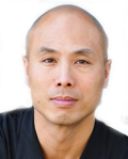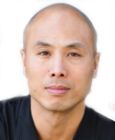“Far better is it to dare mighty things, to win glorious triumphs, even though checkered by failure... than to rank with those poor spirits who neither enjoy nor suffer much, because they live in a gray twilight that knows not victory nor defeat.” -Theodore Roosevelt

We live in a culture that lives in fear, the fear of failure and fear of losing our security. It’s this fear that exacts a costly price on us as individuals. Many work in careers that have no lifeblood to their core, yet they do it because it pays the bills. This is not an indictment for people who have to work to makes ends meet, rather it’s to encourage those with the gnawing sensation that they are missing out on their God-given destiny to follow their calling. Your job may not be matching who you are and you’re letting fear of the unknown keep you in the status quo. Critics may tell you to dismiss your vocational fantasies and deal with reality. But what if God’s calling you to something more?
First off, how can you tell if this is a true calling? How do you know this isn’t just your ego talking? Acknowledging your vocational calling can be difficult and beset with even more insecurity and questions. Some may be fortunate to have been born with a love or passion for a certain activity and also skills to match, thereby ensuring a smoother transition in answering a call. Nevertheless, the same principles apply to the rest of us.
In discerning your calling, you need to continually ask yourself these questions: What propels you to action? If you took money out of the equation, what really motivates you? What do you spend most of your time reading, thinking, or talking about? Are there any themes from your present day that has a link to the past? Our past often drives our future so it’s only natural to look at your history to get a better gauge on where God wants you to go forward with your life.
In practical terms, I can only speak from my own experience. I spent twelve plus years working in broadcast journalism. It was a fun ride. I covered a lot of stories and experienced more of life in this field than I could’ve imagined in any other. Up until that time, it was the only thing I wanted to do. Then a double crisis hit-I went through a divorce and got laid-off within months of each other more than a decade ago. At that point, I thought I had “lost it all”. But there was a blessing in the midst of this hurt. A quote taken from the movie Fight Club encapsulates it best, “It’s only after we’ve lost everything that we’re free to do anything."
With my own losses, I had the opportunity to discover myself. God planted new desires and new dreams. I was given a new lens and prism from which to see life. For others, the crisis could be the death of loved one, a debilitating disease, a major financial hardship, getting fired, or any other life-altering experience. You know in your gut, life will no longer be the same. You are forever altered. Your values change. Your worldview is shaken up. Your faith is tested and given the chance to deepen and grow.
After I rebounded from my lay-off, I found myself back on track with broadcast journalism. I was cranking out daily news stories but for the first time began questioning my career. I felt an uneasiness and a certain disconnect between the stories I produced and the story of my own life unfolding before me. Should I pay attention to this, or was this just part of the grief cycle after experiencing a divorce? I did what people suggested at the time, which was to “keep on keeping on." But the longer I remained in news, the more I felt the nagging sensation that something just felt off. Call it intuition, a gut feeling, or a sense I needed to do more than just write news stories.
By this time, the stories were starting to blur together as the desires of my heart became more distinct. I wanted to promote change and jump in the trenches with men and women who were going through relational struggles. But what was I to do? Give up a good-paying job and face unending questions from Asian parents and friends?
Eventually I went to graduate school and received a master’s degree in clinical psychology, but it didn’t happen overnight. In fact, it took nearly ten years from the end of my first marriage to the beginning of my second career as a therapist in private-practice. I say this because growth takes time. We live in an age of instant access and demand for instant change. You may have a conception for a new you, but before there’s any tangible movement, you may spend years mulling over your ideas. Still, there will come a moment of decision and when that moment arrives, may you take that first step and walk boldly down the path set before you with confidence, conviction, and courage.


